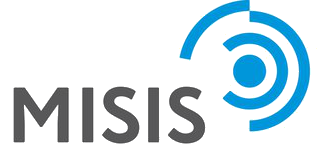New course Empowering Your Academic Writing in English will be launched on 23 October 2018 for NUST MISiS Researchers. The aims of the course are to contribute to the enhancement of academic writing competences and to raise the quality of academic texts and publications in University. Participants will learn the key features of writing for academic purposes, how academic texts differ from the texts written for general purposes; they will extend their repertoire of techniques allowing to write various texts for different purposes. By the end of the course, they will have written their own academic text of a relevant type and genre, including a research paper meant for international publication.
REGISTER
This course is meant for University faculty and research staff with the English level B1+ (CEFR)
Course tutor
Irina Titarenko
MAELT from Lancaster University (UK); Freelance ELT Consultant; Teacher Trainer Cambridge Assessment English
Course contents:
Theme 1. Course introduction. Academic culture and professional context. Written texts for academic and general purposes. Written and spoken language.
Discussion points
‘Netiquette’ and working online. How academic culture and professional context impact the choice of language resources. Written and spoken language. Academic and general writing in English. Types of academic texts. Critical analysis of a written text.
Outcomes
Guided critical analysis of a text. Writing sample texts for different purposes.
Theme 2. Academic text: Key features. Criteria for text analysis.
Discussion points
Key features of academic writing. Text structure and language choice in academic writing. Criteria for evaluation of the quality of academic texts: Complexity, Formality, Responsibility, Objectivity, Explicitness, Precision, Accuracy, Hedging.
Outcomes
Applying criteria for text analysis, proposing text changes and improvements. Participant’s own draft text presentation, self-analysis and revision suggestions.
Theme 3. Academic text: Word, phrase and meaning. Collocations and frequency. Language choice and meaning.
Discussion points
Features of an academic text, choice of relevant lexical items. How word choice influences the change in meaning. Synonyms, lexical groups. Frequency, collocations. ‘Telling’ one story using different language repertoire.
Outcomes
Analysis of texts telling the same story differently; writing different texts using different set of language resources.
Theme 4. Academic text: Sentence and paragraph. Sentence structure. Sentence types. Cohesion and cohesiveness.
Discussion points
Stages for a text writing. Sentence and paragraph levels. Sentence structures and sentence types. Narration and argumentation on paragraph level. Cohesion and cohesiveness: logical connections, work of meanings, cohesive devices. Considering what is meant but not said.
Outcomes
Structured analysis of the given and own texts. Comparing and discussing proposed changes on wiki.
Theme 5. Academic text: Key message, supportive arguments, structure, organization, target reader.
Discussion points
Overall impression created by a written text: clarity of the key message, argumentation and quality of the given examples, organization of ideas and structure, target reader recognition and visibility, reader guidance.
Outcomes
Reader-focused analysis of the given and own texts. Writing different texts telling the same story to different readers.
Theme 6. Academic text: Critical analysis, editing, self-editing.
Discussion points
Instruments and techniques for text reviewing and editing. Identifying problem issues and areas in a text, ways for text improvement. Focus on self-editing and self-reflection.
Outcomes
Demonstrate editing and self-editing competences through a given and own text analysis, reviewing and a proposing set of suggestions for text improvement.
By the end of the course, participants will have produced a final draft of an academic text of an appropriate genre for the course final assessment. This could be a draft of a research article for publication, academic report, motivational letter, project proposal, etc. written to meet their professional interests and priorities. The length of a text may vary, with the part meant for assessment in the range from 700 to 1500 words. The tutor will provide written feedback and recommendations to all timely submitted works.


